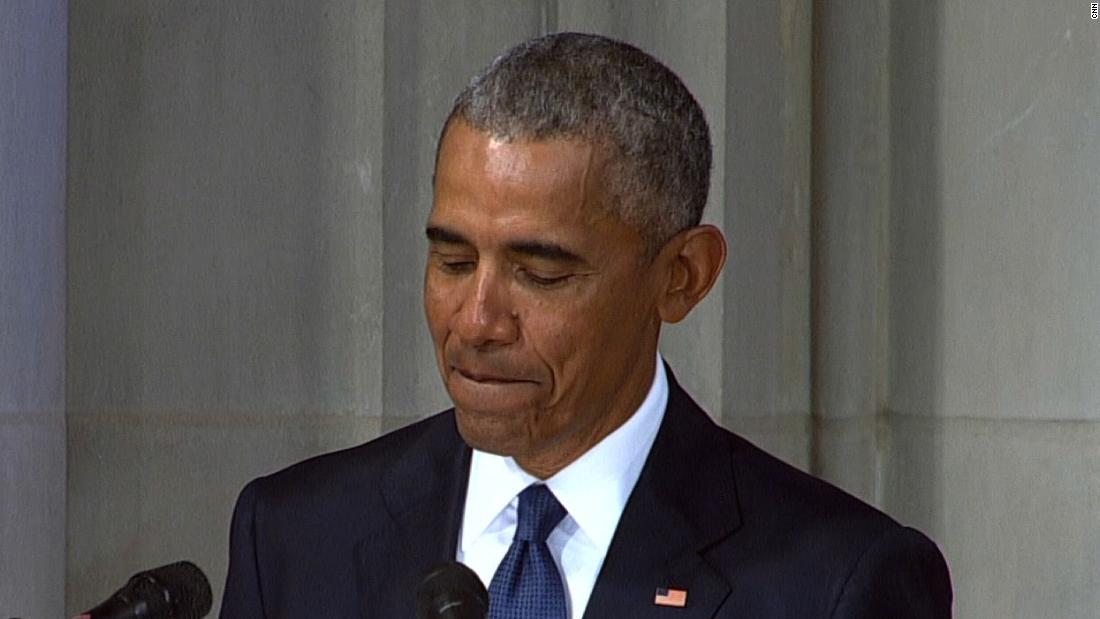
For younger Americans whose first real political memory of the White House is President Donald Trump, the remarks of two former presidents offered an important moment that allows us to imagine the kind of decorum and ethos that is possible when the commander in chief understands the gravity of his role.
One of the jobs of the modern presidency is ceremonial, namely to serve as consoler in chief. President Lyndon Johnson helped the nation grieve after the assassination of John F. Kennedy in 1963. "Let us continue," LBJ told the country.
Few Americans who lived through the 1980s can forget President Ronald Reagan's moving speech after the space shuttle Challenger exploded in 1986. "I know it is hard to understand, but sometimes painful things like this happen. ... It's all part of taking a chance and expanding man's horizons. The future doesn't belong to the fainthearted; it belongs to the brave."
President Bill Clinton had just the right words to say after the horrific bombing of a government building in Oklahoma City, while President George W. Bush stirred the nation, standing at Ground Zero with first responders after the September 11 attacks.
More recently, President Obama led mourners, and the nation, through a powerful rendition of "Amazing Grace" in Charleston, South Carolina, at the funeral for state Sen. Clementa Pinckney, a pastor killed in the church massacre committed by Dylann Roof.
In 2018, we don't have a president capable or interested in this function. President Trump handled the entire week since McCain's death in horrendous fashion, refusing to show empathy, raising the White House flags back up from half-staff shortly after McCain's death -- lowering them again only after public outcry -- and doing as little as possible to show that he cares.
As the funeral began Saturday, President Trump chose to use his time sending out tweets and retweets about the Russia investigation. During McCain's service, Trump tweeted that NAFTA "was one of the WORST Trade Deals ever made." Some might say that President Trump has a tin ear about how his actions come across. Others might say that it is really about having the coldest of hearts.
But, fortunately, for a moment today, the nation saw what a president can do in times like these. George W. Bush and Barack Obama, each of whom experienced some tough battles with the senator on the campaign trail, offered important words to commemorate this fallen public servant.
"Some lives are so vivid it is difficult to imagine them ended," Bush said. He admitted that McCain "made him better" despite their tensions and frustration. He described McCain as a man with a code of values -- someone who always recognized that his political opponents were still "patriots." Bush reminded the nation that McCain did not tolerate "bigots and swaggering despots," or leaders who acted like schoolyard bullies.
"America is better than this," Bush pointedly remarked, remembering what McCain would say when we didn't live up to principle.
Obama continued with another display of what it means to be presidential. We celebrate a "warrior, a statesman, a patriot," Obama said, who embodied what was "best" of America.
When McCain spoke of "virtues like service and duty" they did "not ring hollow." McCain forced us, he said, to think about what were "we doing for our country." McCain understood that "some principles transcend politics; that some values transcend party." He fought for those principles and values, Obama said. "John understood, as JFK understood, as Ronald Reagan understood, that part of what makes our country is great is that our membership is not based on our bloodline" but "on adherence to a common creed. That all of us are created equal."
Obama reminded everyone that McCain never treated people differently because of their race, their religion and their gender, never accepting the "birthers" who challenged Obama's legitimacy. McCain, Obama said, understood the great responsibility that came with power -- that the United States guides the world through its values, not just its political might.
In stirring words, Obama explained that McCain called on the nation to be better and bigger than "politics that pretends to be brave and tough but in fact is borne in fear." We need to follow his example.
Too often, we risk normalizing the way that President Trump acts. The nation and its politicians -- Democrats and Republicans -- can't afford to do so. That is Sen. McCain's departing message to the democracy that he loved.
As we remember a public servant who devoted his entire life to our nation, two former presidents have reminded us what it means to be president. And McCain's memory this week reminded us about the values to which our politics must aspire. Putting aside the partisanship, there are certain norms and certain traditions that we must uphold, for those are what allow leaders to lead in crisis and sadness.
No comments:
Post a Comment